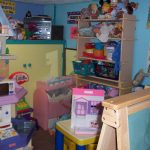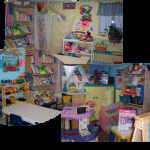30
Aug.2022
BY MATTHEW LYNCHJULY 17, 202222450
Spread the love
Simplified activities that can assist in the improvement of your kid’s cognitive developmentfrom birth to age five are highlighted below:
Birth to 1 Year
- Books, especially those with bright contrasting colors and patterns with relatable images, should be read to your baby.
- Sing simplified and rhythmic songs. Classical music should be often played, and toys that make interesting sounds must always be around the child.
- Hang up mirrors or cards that can be reached out to and looked upon by your baby.
- By observing a baby’s gestures intently, you can learn a lot. Be attentive to them, and talk to them often.
- As you carry your baby during outings or when around the house, narrate to them your actions.
- Allow them to move around and have some “tummy time.”
- Permit your baby to explore different textures.
- Use physical touch and body massages. (Studies reveal that physical touch aids in brain development for babies)
- Play simple games with the baby. An example is “Peek-A-Boo.”
1 Year to 2 Years
- Recite, rehearse and sing songs and or nursery rhymes that integrate body motions, like “Itsy Bitsy Spider.”
- Play a variety of games continually. Use building blocks, or, once your child has enough understanding, play games like “Hide and Seek.”
- Allow your toddler to assist with simple household tasks. Assist your child in learning about sorting, organizing, and categorizing, using objects such as toys.
- Make age-appropriate, simple, logical, and consistent rules and enforce them with positive discipline.
- Develop simple routines with your child.
- Provide your child with sensory experiences with messy materials like sand, mud, and water. You must strictly supervise these experiences.
- Take note of noises your child hears throughout the day.
- Sing the ABCs with the child.
- Make use of shapes, colors, and counting in everyday contexts.
3 Years to 5 Years
- Provide simple choices with two options to your child. You could ask the child something like, “What would you rather eat, waffles or pancakes for breakfast?”
- Throw simple questions at your child. For instance, show the child a couple of toys and which one he would like to play with first. Or, after crossing the street, stop and ask why we look both ways before crossing the street.
- Visit places that can arouse the child’s interest, like an aquarium, library, or children’s museum. Pay apt attention to the curious questions of your child, including their actions, reactions, and responses when you ask them questions.
- Engage your child in simple board games or puzzles early enough.
- Encourage your kid’s imagination and creativity.
- Get your child involved in symbolic play and pretend play.
- Continually read aloud to your child and introduce thought-provoking questions using books.
- Enjoin your child to reflect on their thinking and learning. You can ask them questions like, “What’s something new that you learned?” “Can you do this?” after reading a book or returning from school?
Although these activities are simple and pretty easy to implement, they are guaranteed to surely help boost your kid’s brainpower.
Category: Education






